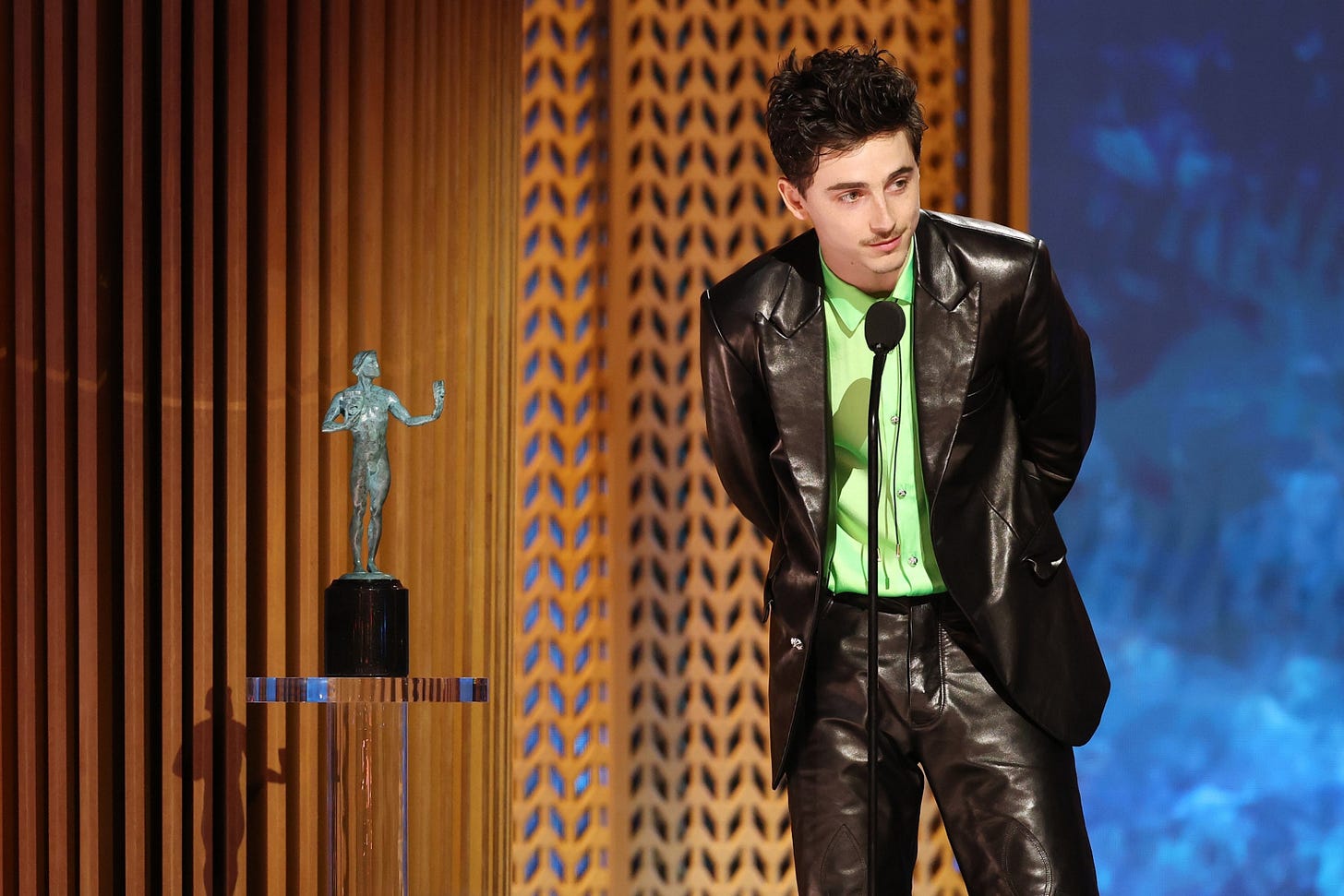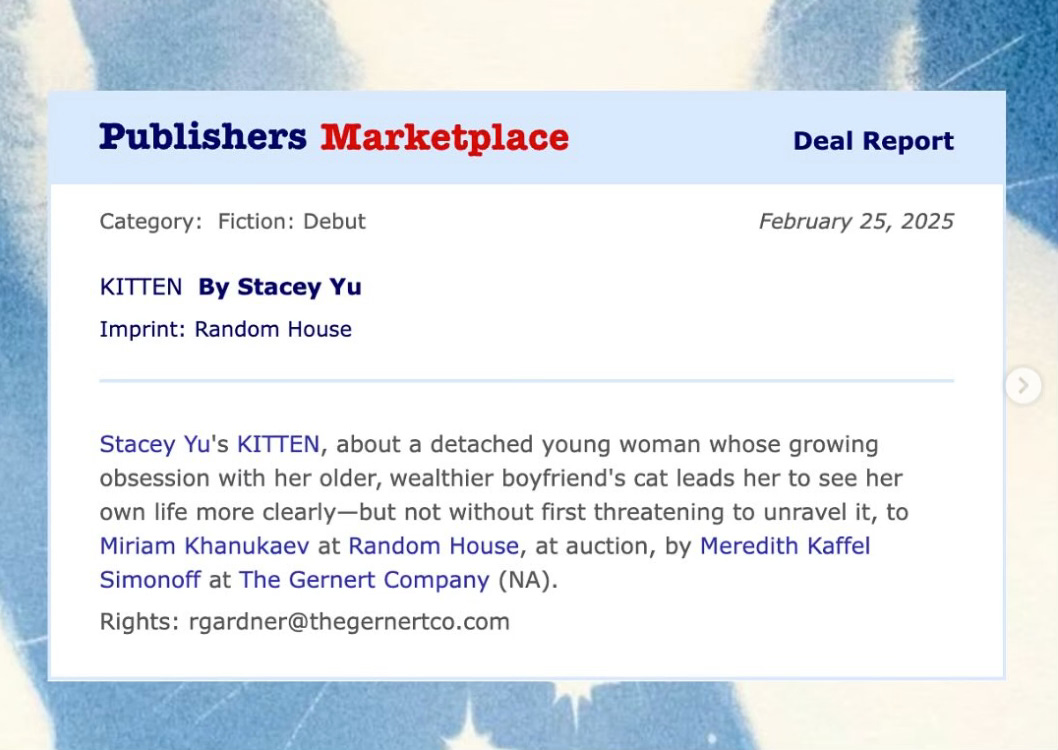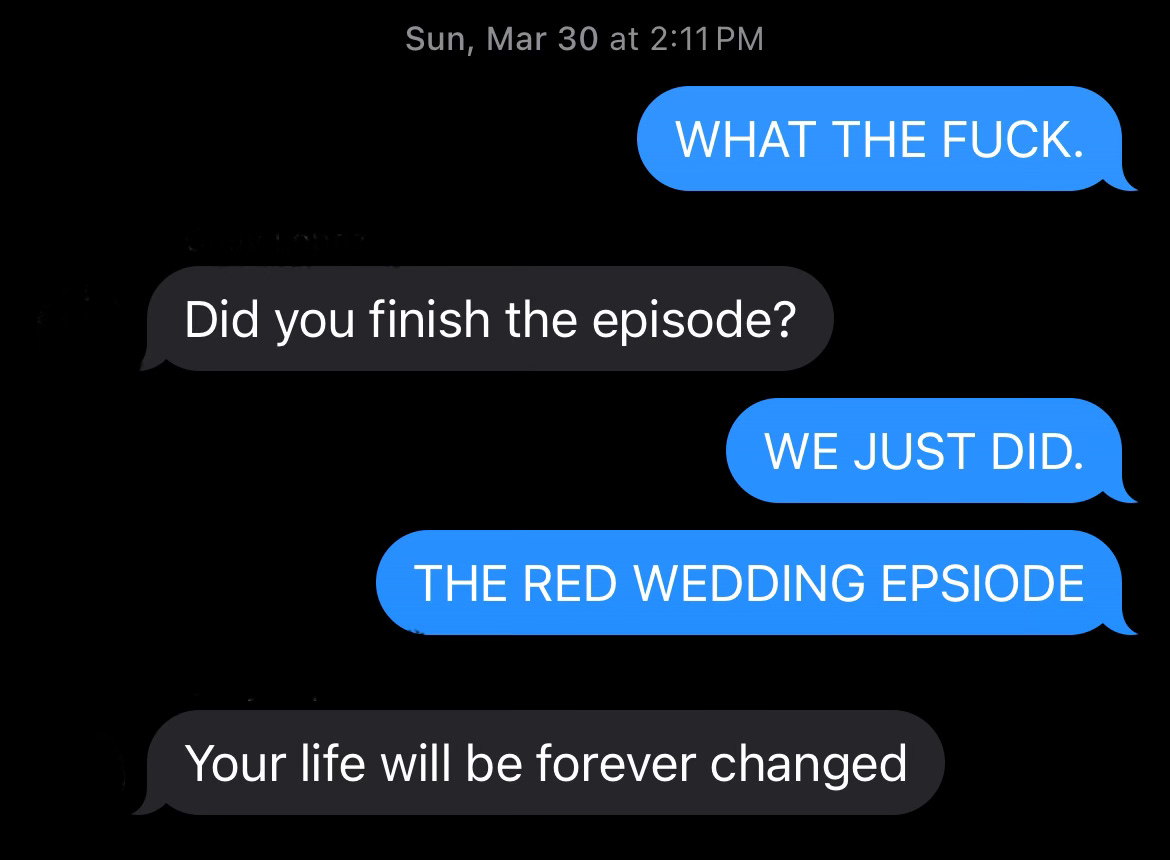When I was younger, any time there was an obvious, sweltering gap between journal entries, I used to apologize to a probable, future self of mine reading back and noticing the stretch between dates. Sorry! I know I haven’t written in a while. School has been rough. Sometime when I turned 23, when I was less depressed and less defined by the times I was depressed, I made it abundantly clear in my entries, to this future self, that I was nowhere near apologetic for having not written. Sorry, not sorry! I was out living my life. I’m here now writing so I can talk about it, but if I hadn’t, it was because I didn’t plan on coming empty-handed. I’ve been busy! Sue me, subpoena me, kiss me, whatever. I can’t call it a break because I never intended to rest from it—Substack, this, essay writing—but through this immense subversion of my own intentions, I got busy. And I got a lot of stuff done being busy. Of course, no one’s counting. But I feel like a larger point about being busy is that it’s kind of transformational. Because when you’re busy, you’re out doing more, and more, and more, and that boils over into things of an entirely different form. Vapors and steam. Major life changes. So when you reconvene with friends after a hiatus, picking at table bread and sipping drinks, the disclosure of having been so busy is a precursor for this is what’s changed. Here’s what’s changed for me:
At a certain point, Substack started to feel, and look, a lot like Tumblr. I love looking looking through it; I love watching the strip of content on the dashboard uniformly compile colors and objects. I love Hearting a snapshot of someone’s weekend, I love seeing people gab about what they’re hoping to write and hoping to create (it’s the precursor for doing art but just much more exciting). I love Substack! But I also stopped seeing Substack for what it was originally intended, and less and less of the words I encountered on the Home page started to come off as words. I got a little disillusioned by the beauty of it all, to the point where even the pictures stopped resembling pictures overall. My eyes glossed over everything, thick and unenjoyable.
So I took a break. Focused on what came directly into my inbox and fished out whatever essays would be enjoyable. Lately, I’ve come to really value a Rayne Fisher-Quinn piece when it drops (see Anora’s American Dream), and I caught up on Severance Season 2 (Gemma????), watched Season 3 of The White Lotus (“I’m glad you have a beautiful face. I’m glad you have a beautiful life,” was perfection.) and finally got around to reaching the end of Season 4 of Game of Thrones, meaning that I am one of the last few people in the modern world to have known what the Red Wedding was and just how good Peter Dinklage is as an actor.
I haven’t lost all of my writing urges these past couple months. I told a colleague not too long ago about a shared epiphany he had disclosed to me years before: I wished I didn’t have to make dinner, or eat at all, so I had more time to think about writing. Sometimes I wished sleep wasn’t even a thing, I confessed, and while looking for constancy, some kind of dedication undeterred by anything humanly trivial, like hunger and rest, I recognized that, really, I just wanted to write. I wanted to dedicate several lifetimes to learning how. My friend, Sean, said he’d spend a lifetime working on grammar, another on story. He lectured me about restarting manuscripts and writing anxiety. Eventually, he encouraged me to try the two-sentence-per-day practice.
A colleague from school had tried to tell me about it. I thought it was kind of ridiculous. People trying to bring the “start small” talk into an arena where only big, grand things could happen. Benching 250 and back-spinning roundhouse kicks, or nothing! Why would anyone ever want to start small when the idea of a book was to go big? Create largely; I wanted the whole page. But as Sean continuously pointed out: You don’t write at all.
WHICH WAS VERY DIFFICULT AND AWFUL TO HEAR. But it was true. The last time I’d really written something, a real fiction piece, was during my last quarter before graduating university, two whole years ago. All other Google Docs, Notes App posts and makeshift, online word processing means have been courageous but feasible attempts at story. I hadn’t written a story in two years. No amount of appetite would have made me feel less unfulfilled.
I started the two sentence practice on a whim one Thursday night. I showed it to my colleague. I wrote two more sentences and a few sentences after that on Friday night, a day that I had off, and Sean looked it over citing approval. COOL. I wrote a little more and I started working on draft, a new one, leaving my old book idea behind.
I had been telling people all about the memory book. I corrected them if they called it a time travel book, or that it reminded them of Benjamin Button. And I was very adamant about it. Almost possessive. I clung to this book idea that was mine and that I had already called dibs on and pro-actively convinced myself and everyone around me that I was working on it, even when I wasn’t, but that was fine because all the best writing takes at least a decade to materialize and mine would be soooooo good and all I needed was the patience, remembering the tortoise won, and not the hare, and eventually the book would become a book and not some convoluted husk of Google docs pages that I’ve been harboring by the attempt and it would be just SO COOL to have come out on the other side of my personal literary bloodbath with the fruit of my labor and place it on the beautiful, ornate table at the entrance of a Barnes & Noble Bookseller with National Book Award Winner sticker on the cover. SO COOL.
I’ve been watching some of Dua Lipa’s Service 95 interviews with authors, and while watching her conversation with Trust author, the Pulitzer Prize winner for Fiction, Hernan Diaz, about the novel, his ambitions as a writer without the promise of prize-winning or bookselling, his encouragement for writers to move with writing in the same way, I kind of laughed. Like a big laugh. Easy for you to say, Pulitzer Prize Winner for Fiction writer, Hernan Diaz! Try saying that when you’re twenty-five years old attempting to write your debut novel in the one bedroom you can hardly afford on your singular income! Call me when you can write without feeling like you’re about to have a heart attack and the blank, perfect-white of your Google Docs page looks so enticing but so menacing when you attempt to deface it with your own writing! Thanks Pulitzer Prize Winner for Fiction writer, Hernan Diaz, for that wonderful advice!
He was right though. But he was also a little wrong. Because I do write with the intention of being the best and winning a National Book Award (at least the longlist), the Pulitzer Prize for Fiction (I’m feeling really ambitious right now). I get it: writing with the intention of winning prizes gets you nowhere. It can show in the writing, or in the lack thereof. If everyone drove towards the awards everyone would miss the exits they truly needed to merge into. But I just couldn’t fully believe in that idea every time I nodded in agreement. These well-meaning, aspirational sentiments didn’t work for me, maybe, because I am not well-meaning or aspirational when I write.
I think I’m overly-ambitious—I bite off more than I can physically hold in my mouth and still chew—and I write with this idea that if I do not write, I will die. But when I do write, I am also slowly chipping away at something inside of me—I can’t tell if this corrosive behavior is removing necessary tissue or excess, but I know that I write with this risk already in consideration: I write with the hammer and measure the distance of every nail. I could miss, but I refuse to.

Diaz’s advice got to me because I am both someone who is affected by awards but also driven by them. If I don’t write, I die, but when I get too far deep into other people’s award-winning work, I summon the comparison demon. I get obsessive. I research about other people’s writing, what practices and techniques it took people to get the genius that they reach on paper and I start pre-meditating my writing, stopping myself before I can even get anything down if it’s not “anything Miranda July would write,” and then I get anxious. And then my colleague tells me, You’re not writing anything, and I say, I know, I know, but really, I don’t know. I start obsessing over the screenshot of my debut book’s official sale on the Publisher’s Marketplace. I start reading what the debut authors read, what they write online, what their career trajectories have been. I don’t write a single word.
But when I don’t consider awards, the idea of making a book that is so fundamentally important and unique and new, I don’t think the drive to challenge myself can occur as organically. Sure, I can get a story down if the assignment calls for it, but a good story, a great one, is all I can consider producing with all of my attention. And I think I write with the hope that over-shooting my literary ability will eventually result in me learning to write in new ways; Trust is written in four different texts of several different accounts, all overlapping to challenge the reader into what they determine to be the truth. Diaz is probably that much of a literary phenomenon to think of that on his own, but I know that I operate in a way that has to overshoot to get as far as I can. Even if I miss the nail, I’m putting all my force into the swing of the hammer.

I started writing about obsession because its this very outward way of letting people know you’re getting desperate, you’re getting closer and closer to the unobtainable, and missing. Missing the whole point of your obsession that it becomes so clear, you can’t even see it, but everyone else can see you and your incredibly glass-fragile insecurities. Doesn’t that sound fun? Doesn’t that sound like someone you know?
So I’ve been busy! But in a good way: my boyfriend and I are renew our lease in our very first apartment soon and I’ve been making a steady way back to reading regularly (I will reach my Goodreads reading goal this year); when I have more money to spare, I’m hoping to invest in more resources for writing: books, upgrading to paid newsletters (I am outside The Molehill gates itching to break in), magazines and dedicating myself to writing again, for both this blog and my novel. SO COOL.
Much love,
VAL
ALSO:
Do not ask me about my book is going. I’ll tell you, it’s going!, and then I ‘ll tell Sean how it’s actually going. My boyfriend is also keeping tabs on my page progress.
After sitting myself down and talking to myself, I’ve come to the realization that once we finish Game of Thrones, I will not be watching House of the Dragon.
Substack posting will hopefully resume. If it doesn’t, it’s because I’m busy and I’m happy about that too.



